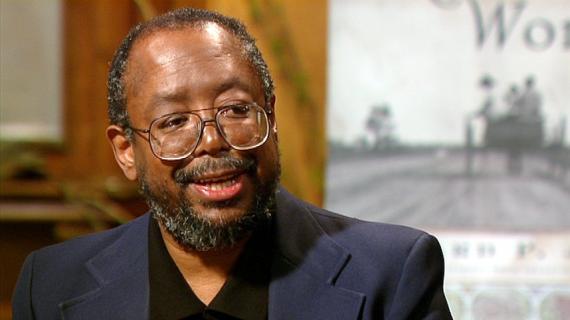
At some point in my adolescence, whenever I was on the verge of setting off for some difficult or uncertain endeavor, my mother began to always say to me, “Don’t be dumb.” This was her way of saying, “Be smart, be safe, be you.” Where she got this from, I have not the foggiest, but this at least was her own humorous way of expressing care. While it may seem incredibly minor and insignificant, this specific and constant reminding affected me in lifelong ways.
The same goes for fictional characters: what their parents, their friends, and their lovers always say deeply impacts them and their future actions. And Edward P. Jones’s story collection Lost in the City is a perfect example of an author knowing the importance of the expressions that make up a character’s history.

Some examples:
“Carleton, younger by two years, did not want to repeat what his brother had said, so he repeated one of the things his grandfather, who was losing his mind, always told him: ‘Don’t get lost in the city.’” (from “The Girl Who Raised Pigeons”)
“Sherman Wheeler had rarely carried a gun. ‘My daddy got his toe shot off trying to quick-draw one a those things,’ he said once. ‘Sides, my mind is the only gun I need.’” (from “Young Lions”)
“My mother always said that every bullfrog praises his own poem, but I know for a natural fact that I was an excellent worker.” (from “The Store”)
https://www.youtube.com/watch?v=W5sPWxFiVZI
It’s very easy to forget that your characters don’t solely exist in the vacuum of your story; they have lives outside of the words you’ve written. They’ve had previous experiences, big and small. And while the urge might be to jump back to one of the obvious impacting experiences (death, violence, birth), it’s just as important (if not also more interesting!) to consider the most minor details that have shaped your character. What did their mother always say? What did their father always do before he went to bed? What nickname did his friends always call him at school but never at home? Has your character embraced these sayings or rejected them, and why?
Throughout Lost in the City, Edward P. Jones masterfully constructs his characters out of such seemingly miniscule rememberings. Characters recall their childhoods fondly, characters deny certain aspects of their upbringings, and characters develop complex relationships with both their checkered pasts and their parents’. This is but one way Jones’s work demonstrates his full grasp of what it means not only to write, but also how to tell a story: what is said versus what is remembered (as well as what is not remembered or misremembered).
While reading his collection, I can’t help but feel I’m in the presence of a writer who is showing me exactly the right cards at the right time. Yet, he never reveals the full hand, which would disrupt the vivid and continuous dream. And like in any well-crafted story, what a character remembers his friends or his grandfather or his mother always saying always comes back around to impact the present.
Now I’ll be teaching Lost in the City as a Reading as a Writer class this upcoming session at Lighthouse, and I can guarantee you that on my way to that first day of class, I’ll be saying to myself, “Don’t be dumb. Don’t be dumb.”
Alexander Lumans was the Spring 2014 Philip Roth Resident at Bucknell University. He spent part of Summer 2015 in the Arctic as a fellow on The Arctic Circle Residency. His class on Lost in the City starts January 13.

